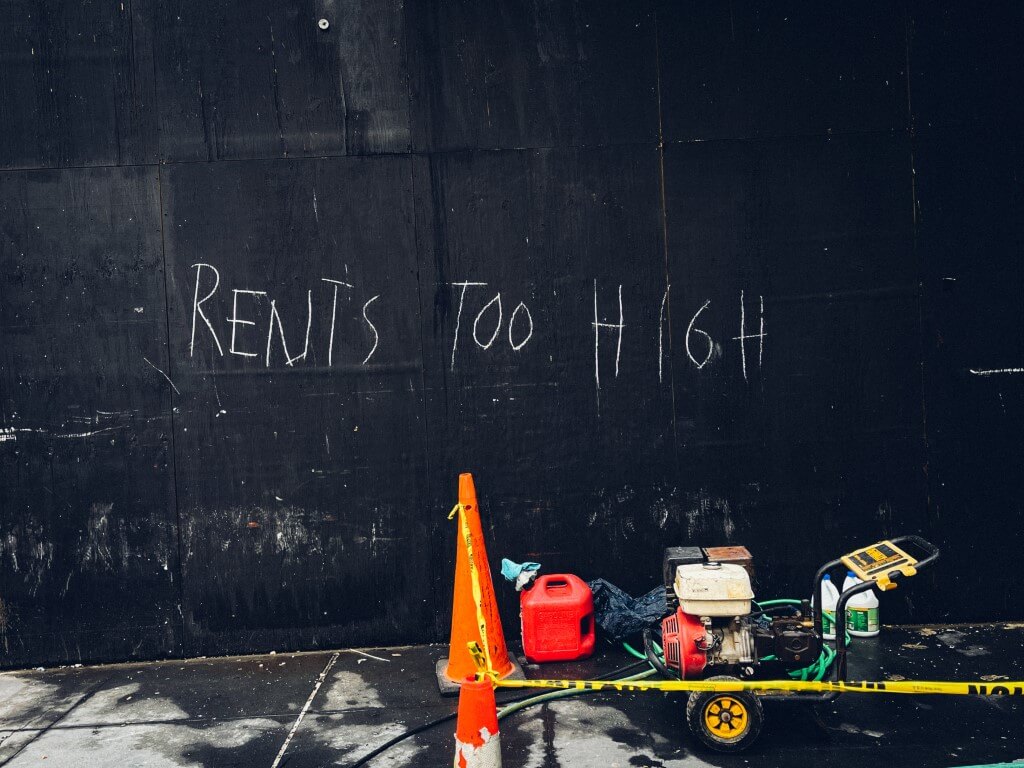Some early New Year advice and support for renters, courtesy of Talitha Burgess, Managing Director at Clarity Property Management
Here at Clarity, we’ve already had quite a few enquiries from tenants, and in particular those raising questions and concerns about their rent going up.
I know it’s easy for me to say this, and I’m not minimising your situation at all, but please don’t be too concerned.
Whilst acknowledging that costs may be tight for you after Christmas and that a rent increase is the last thing on your 2022 wish list, it’s most likely the result of a perfect storm of events that happened last year. Its roots stretch back as far back to the start of the pandemic – nearly two years ago. This is uncomfortable, but it’s not personal. Further, landlords have held off from putting up rents for as long as possible.
More or less, it’s down to maths.

The Property Paradox
In my opinion, when the economy is squeezed – when there’s good, bad or dramatic news, for example, we often see a contradictory effect in the property market. I’ll take you through what I mean.
As an established rental agency, we’re aware that this sector can be trigger-responsive. Changes in laws for landlords, our fluctuating economy, and the world in general can have a direct knock-on effect to your domestic situation as a tenant. Often, these are positive effects; your physical safety, as someone who rents in 2022 is far more safeguarded than it was in 2012, and ten years before that – and so on.
The law has been, and continues to be on your side.
On the other hand, other developments have jumbled things up. It’s harder to find good rental properties, and when you do actually discover your dream home, becoming a tenant can stretch you financially.
But, bear with. When it comes to the rental market, there’s always the bigger picture to consider.
Let me outline the most common reasons that could be behind your higher rent, with some facts and figures you may not have been aware of.
Increase in Mortgage Interest Rates
If your landlord has a mortgage on the property, it’s possible that they reaped the rewards of previously record-low interest rates. Of course, this might have been offset against things like the letting agent fee ban, and the restriction of buy-to-let mortgage tax relief. Swings and roundabouts.
One direct effect, however, is that from now on your landlord’s mortgage repayments are going up. They’re paying more, and as a result, you are, too. Why? Because in December 2021, the Bank of England increased its base interest rate from 0.1 per cent to 0.25 percent, with most mortgage lenders increasing their rates in line with the Bank.
Moreover, the Big Wigs are all getting together again on February 3rd, and there are rumours that the rate could go up again.
Recouping Covid Losses
A considerable proportion of landlords suffered large losses in their commercial and residential property portfolios throughout 2020, and in most of 2021. Government support was available. For example, a three-month mortgage payment holiday which was extended to landlords whose tenants struggled to meet their rental payments. But, it couldn’t last for ever.
Whilst tenant evictions were unlawful for an extended period, those monies could still be owing to some landlords, now substantially out of pocket. The money may not be there, but those bills just keep on coming.
Market Demand
We’ve touched on the fact that there’s fierce competition for rental properties in the south of England, and indeed in large parts of the UK.
Recent research from Zoopla revealed that the number of homes available to let in the last year is at levels that are an eye-watering 43 per cent below the five-year average. If something is rare, it increases in price. And this of course, applies to housing as much as anything.
Also, did you know that Down-From-Londoners, otherwise known as DFLs, have also played their part? Landlords are being targeted by those armed with a) a flat or house wish list and b) a high budget with which to secure their bijoux property by the sea. The result? Confident landlords happy to offer shorter-term, higher-priced rentals for robust returns.
Cost of Living Crisis
Inflation, formerly barely touching our radar is now at 5.1% – the highest it’s been for years and years.
The newspaper you bought at £1 just a short while ago, will now cost you £1.05p. Over time, these price rises will apply to everything. Not only does reduce your spending power, it also muddies the water of your landlord’s financial situation.
Given that interest rates on savings will now no longer return any more than a quite frankly laughable 0.25%, you can see the problem: for some buy-to-let investors, their money may be going backwards.
Other Costs
With every year that passes, landlords jump through more and more costly regulatory hoops.
For example, they need to pay for an energy performance certificate for all their properties. These are going to be high profile in 2022.
On a spectrum. A equals excellent, G will cast doom and gloom; must do better. The property needs work. Also, regular Electrical Installation Condition Reports (EICRs), and gas safety certificates. Yes, of course we would all expect this – you need to be safe – but soon the UK’s rental stock is in line to be lined up against the government’s stringent energy targets.
And possibly, found wanting.
In Summary
Your landlord is a businessperson, and views his or her property portfolio as such. Plus, we’re going to be explicit here: your landlord is a person, with their own stuff going on. They’re not out to rob you, or rip you off.
Do rest assured that Clarity only works with legitimate, decent landlords. After all, our reputation proceeds us. However, their investment in property earns them a living, or subsidises their income. You’re a reliable, considerate tenant, no doubt. Believe me when I say that your landlord wants to keep you.
That rental increase letter will have been long thought-out, and considered.
To end on a positive note:
Play the long game. Continue to pay your rent on time, and keep the property in excellent condition. Remain discreet, quiet and aware of your neighbours. Your reward could be a rent freeze. Or rather, one that remains static over a longer period of time.
There are no guarantees, though. But, onwards and upwards. And, all the best for 2022.
Christmas Opening Hours 2024
Plan your viewings this festive season with our 2024 Christmas opening hours below!
Brighton & Hove City Council’s Selective Licensing Scheme
Here at Aston Vaughan Lettings, we understand how the new Selective Licencing Scheme has come as a shock to some of our valued landlords. With this in mind, we want to support you in any way we can to ensure your properties are legally licensed to avoid any fines from...
First-time buyers are better off buying than renting
It is now 8% cheaper to buy a property than to rent in the same area even despite higher mortgage rates, Zoopla research has revealed.Analysis by the portal found that a third of homes of the 500,000 homes currently for sale can be bought with a mortgage and monthly...
So, You Want to Sign Up For Another Year? But With DIFFERENT Housemates?
You’re a student in a shared house in Brighton. It’s a great place to live, the property is clean and comfortable - and you’re keen to stay there. But, you’re changing up the dynamic – with one or more brand-new housemates. No problem at all. The Clarity team is...
How to Avoid Making Mistakes When Renting
If you’re a professional not yet ready to buy a property, it’s essential to know how to avoid mistakes when renting in Brighton and Hove. Being a tenant gives you options, but like anything in life, it’s easy to get wrong and end up living somewhere that puts your...
